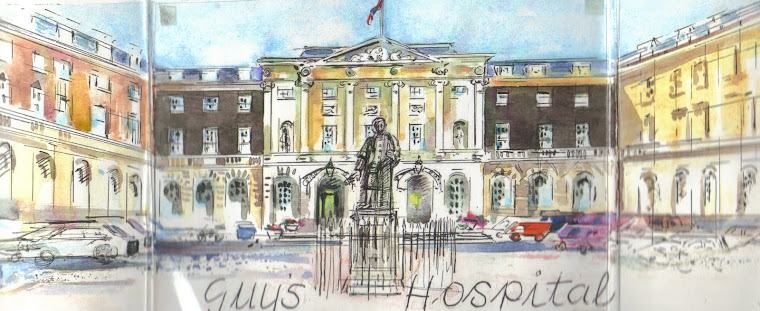It was surprisingly difficult to get myself “voluntarily erased” from the Medical Register. As in the case of Police Officers who retire early when facing disciplinary proceedings, the GMC seemed to assume that by applying to have myself de-registered, I was trying to avoid the stigma of being “struck off”. It was 2014, I was aged 78, and only working one day a week, at the private clinic I had helped set up some 30 years previously. I had gradually retired from my NHS commitments, at Guy’s and at Addenbrooke’s, shortly before. Both the GMC and the Medical Protection Society had gone back on their commitment to grant 65 year-old doctors continuing free membership for as long as they wanted to go on working. The MPS asked me for £2750 a year, although I was only intending to work one day a week in a low-risk speciality, and had never in 53 years had a claim, or even an enquiry for them to answer. Working involved a 20 mile drive from Winchelsea to Ashford, a train to St Pancras, a bus or taxi to and from Wimpole Street, as well as exorbitant car-parking charges at the station. I worked out that in any year it would be the third week in August before I earned anything that would stay in my pocket, rather than benefitting the Inland Revenue, British Rail, the GMC, the MPS etc. I was asked by the GMC to produce some evidence from my manager that I was not under any cloud. They seemed to find it hard to grasp that being part-owner and Medical Director of a private clinic I was essentially my own manager. Eventually I succeeded in being “voluntarily erased” and settled into a well-earned retirement.
I was surprised, in the light of the above, to get an e-mail from the GMC, shortly after the start of the pandemic, telling me that they had, without my asking, restored me to the Medical Register. I gathered that this honour would not involve my paying a subscription. Among the useful roles the GMC thought I might be able to help with were “manning 111 lines” and “signing death certificates”. This unfortunate juxtaposition made me wonder if they believed the latter might be the consequence of the former. I responded positively to this offer, and a long form arrived for me to fill in on-line. I was subsequently phoned by what sounded like a teenager on job-experience working through a pro-forma he didn’t really understand, the object being, I understood, to match me to a suitable role, if any such existed. There was then no further communication, but the newspapers’ correspondence columns were full of tales of retired medically qualified volunteers like me being put through all sorts of fire and safety, diversity awareness and various other training courses before being let back within a syringe-length of a patient.
.
I was subsequently contacted by a group of retired Guy’s doctors to see if I could help the immunisation effort, in this case offering the incentive of getting my own jabs before I could start. After a longish silence I had an e-mail to say that they hadn’t enough supplies of vaccine to occupy all the volunteers. I’ve now had both my injections at our local centre, and will have to consider carefully whether I want to start commuting to London again, if the call ever comes.

